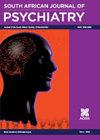COVID-19 南非严重精神疾病患者及其家庭的经历
IF 1
4区 医学
Q4 PSYCHIATRY
引用次数: 0
摘要
背景:在中低收入国家,严重精神疾病(如精神分裂症)患者及其家庭照顾者得不到充分的服务,因为这些国家往往缺乏有组织的社区社会心理支持。目的:本研究探讨了南非 2019 年冠状病毒病(COVID-19)大流行初期,严重精神疾病患者及其家庭照顾者的经历和应对策略:这项定性研究是在南非东开普省纳尔逊-曼德拉湾区进行的,当时正值 COVID-19 封锁最严格的时期:电话定性访谈的对象是有亲身经历的人(14 人)和照顾者(15 人)。录音被转录并翻译成英语。使用 NVivo 12 进行了专题分析:结果:参与者描述了负面影响,包括物质生活更加困难、社会隔离加剧和焦虑加重,尤其是对承担多重照顾责任的照顾者而言。应对策略包括想方设法从他人那里获得支持,同时也给予支持,参与生产性活动,以及照顾身体健康。主要的局限性在于只纳入了可以使用电话的人群:结论:严重精神疾病患者及其家人所需要的支持应包括社交互动和分享应对策略的机会,以 及加强经济保障:这些研究结果表明,目前对这一弱势群体的支持是不够的,因此必须优先分配资源,为家庭提供更多基于社区、以康复为重点的服务。本文章由计算机程序翻译,如有差异,请以英文原文为准。
COVID-19 experience of people with severe mental health conditions and families in South Africa
Background: People with severe mental health conditions, such as schizophrenia, and their family caregivers are underserved in low- and middle-income countries where structured psychosocial support in the community is often lacking. This can present challenges to recovery and for coping with additional strains, such as a pandemic.Aim: This study explored the experiences and coping strategies of people with lived experience of a severe mental health condition, and family caregivers, in South Africa during the initial stages of the coronavirus disease 2019 (COVID-19) pandemic.Setting: This qualitative study was conducted in the Nelson Mandela Bay District, Eastern Cape, South Africa, in the most restrictive period of the COVID-19 lockdown.Methods: Telephonic qualitative interviews were conducted with people with lived experience (n = 14) and caregivers (n = 15). Audio recordings were transcribed and translated to English from isiXhosa. Thematic analysis was conducted with NVivo 12.Results: Participants described negative impacts including increased material hardship, intensified social isolation and heightened anxiety, particularly among caregivers who had multiple caregiving responsibilities. Coping strategies included finding ways to not only get support from others but also give support, engaging in productive activities and taking care of physical health. The main limitation was inclusion only of people with access to a telephone.Conclusion: Support needs for people with severe mental health conditions and their families should include opportunities for social interaction and sharing coping strategies as well as bolstering financial security.Contribution: These findings indicate that current support for this vulnerable group is inadequate, and resource allocation for implementation of additional community-based, recovery-focused services for families must be prioritised.
求助全文
通过发布文献求助,成功后即可免费获取论文全文。
去求助
来源期刊
CiteScore
1.60
自引率
10.00%
发文量
56
审稿时长
>12 weeks
期刊介绍:
The journal is the leading psychiatric journal of Africa. It provides open-access scholarly reading for psychiatrists, clinical psychologists and all with an interest in mental health. It carries empirical and conceptual research articles, reviews, editorials, and scientific letters related to psychiatry. It publishes work from various places in the world, and makes special provision for the interests of Africa. It seeks to serve its readership and researchers with the most topical content in psychiatry for clinical practice and academic pursuits, including work in the subspecialty areas of psychiatry.

 求助内容:
求助内容: 应助结果提醒方式:
应助结果提醒方式:


